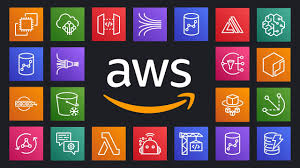15 AWS Tools Every DevOps Engineer Should Know
 Deepesh Gupta
Deepesh GuptaTable of contents
- 1. EC2 (Elastic Compute Cloud)
- 2. VPC (Virtual Private Cloud)
- 3. EBS (Elastic Block Store)
- 4. S3 Bucket (Simple Storage Service)
- 5. IAM (Identity & Access Management)
- 6. CloudWatch
- 7. Lambda
- 8. Cloud Build Services
- 9. AWS Config
- 10. Billing and Cost Management
- 11. AWS KMS (Key Management Service)
- 12. CloudTrail
- 13. AWS EKS (Elastic Kubernetes Service)
- 14. ECS (Elastic Container Service)
- 15. ELK (ElasticSearch Service)
- Key Takeaways:

🚀 DevOps Adventure: 15 AWS Services Every Engineer Should Know! 🚀
AWS (Amazon Web Services) is a key player in today’s cloud computing world, and knowing its services is essential for every DevOps engineer. This blog covered a thorough look at the vital AWS services that DevOps professionals should know. These services aren’t just tools—they’re fundamental for deploying, managing, and scaling applications in the cloud.
In this blog post, I’ll guide you through the 15 must-know AWS services for DevOps engineers, explaining what each one does, how it works, and how it fits into the DevOps process.
1. EC2 (Elastic Compute Cloud)
Amazon EC2 is the foundation of AWS cloud computing. It offers scalable computing power in the cloud, enabling developers to run applications on virtual servers. EC2 instances can be tailored to meet the specific needs of an application, offering flexibility in CPU, memory, storage, and network capabilities.
Why EC2 is Important:
Scalability: Easily scale up or down based on demand.
Customization: Choose from a variety of instance types optimized for different workloads.
Security: Integrate with AWS security features like IAM and VPC.
2. VPC (Virtual Private Cloud)
AWS VPC lets you create a private, isolated section of the AWS cloud where you can launch resources within a virtual network of your choice. It’s crucial for securing your EC2 instances and other AWS services, making sure they are only accessible according to the rules you set.
Key Components of VPC:
Security Groups: Acts as a virtual firewall to control inbound and outbound traffic.
CIDR Blocks: Define IP ranges for your resources within the VPC.
Inbound/Outbound Traffic Rules: Manage traffic flow to and from your resources.
3. EBS (Elastic Block Store)
EBS gives you reliable storage for EC2 instances. Unlike the temporary storage that comes with EC2, EBS keeps your data even if the instance is turned off or removed.
Why Use EBS:
Persistence: Data remains intact across restarts and instance failures.
Performance: Offers different volume types optimized for performance or cost.
Flexibility: Easily attach and detach volumes to and from EC2 instances.
4. S3 Bucket (Simple Storage Service)
Amazon S3 is a scalable storage service that lets you store and access any amount of data from anywhere. It’s great for handling large files and is commonly used for backups, archiving, and creating data lakes.
Features of S3:
Scalability: Store an unlimited amount of data.
Security: Offers encryption by default to protect data.
Lifecycle Management: Automatically move data to different storage classes based on rules you define.
5. IAM (Identity & Access Management)
IAM lets you control who can access AWS services and resources securely. With IAM, you can create users, groups, and roles, and set permissions to manage what each person or group can do in your AWS environment.
IAM Best Practices:
Principle of Least Privilege: Grant only the permissions necessary for users to perform their tasks.
Multi-Factor Authentication (MFA): Add an extra layer of security for sensitive operations.
Role-Based Access Control (RBAC): Use roles to delegate access across accounts and services.
6. CloudWatch
Amazon CloudWatch helps you monitor and track your AWS resources and applications. It gathers metrics, sets up alarms, and can automatically respond to changes in your AWS environment.
Why CloudWatch is Essential:
Monitoring: Keep an eye on CPU usage, disk I/O, network traffic, and more.
Alarms: Set thresholds to automatically trigger actions like scaling or notifications.
Logs: Centralize logs for easier troubleshooting and auditing.
7. Lambda
AWS Lambda is a serverless compute service that lets you run code without needing to manage servers. It automatically adjusts to your application’s needs by executing code in response to triggers like data changes, system events, or user actions.
Lambda Use Cases:
Event-Driven Applications: Run code in response to HTTP requests via Amazon API Gateway.
Real-Time File Processing: Automatically trigger code when files are uploaded to S3.
Backend Processing: Use for scheduled tasks like cleaning up logs or processing data.
8. Cloud Build Services
AWS Cloud Build Services are a set of tools designed to help with Continuous Integration and Continuous Deployment (CI/CD) pipelines.
Components of AWS Cloud Build Services:
AWS CodePipeline: Orchestrates the different stages of a release process.
AWS CodeBuild: Compiles source code, runs tests, and produces software packages.
AWS CodeDeploy: Automates the deployment to various AWS services, like EC2, Lambda, or ECS.
9. AWS Config
AWS Config offers an inventory of AWS resources, keeps a history of their configurations, and sends notifications about configuration changes to support security and governance.
Key Features:
Configuration Management: Track the changes to AWS resources over time.
Compliance Auditing: Automatically evaluate resource configurations for compliance.
Snapshot History: View the history of changes for resources to troubleshoot and audit.
10. Billing and Cost Management
AWS Billing and Cost Management help you manage your spending and optimize costs for using AWS resources.
Features:
Cost Explorer: Visualize and analyze your AWS spending.
Budgets: Set custom cost and usage budgets and receive alerts when you exceed them.
Cost Allocation Tags: Track costs by project, department, or cost center.
11. AWS KMS (Key Management Service)
AWS KMS is a managed service that simplifies creating and managing the encryption keys used to secure your data..
Why AWS KMS?
Secure Key Storage: Keeps cryptographic keys secure with FIPS 140-2 validated hardware security modules.
Integrated with AWS Services: Works seamlessly with other AWS services like S3, EBS, Lambda, and more.
Access Control: Fine-grained permissions for keys using IAM policies.
12. CloudTrail
AWS CloudTrail enables governance, compliance, and operational and risk auditing of your AWS account. It records AWS API calls and provides a history of AWS account activity.
Key Benefits:
Audit Trails: Track API calls and user activity across your AWS infrastructure.
Security Analysis: Detect unusual activity and perform security analysis.
Compliance: Demonstrate compliance with regulatory standards.
13. AWS EKS (Elastic Kubernetes Service)
AWS EKS is a managed service that makes it easy to run Kubernetes on AWS without needing to install, operate, or maintain your own Kubernetes control plane or nodes.
EKS Advantages:
Managed Service: AWS handles the heavy lifting of managing the Kubernetes control plane.
Scalability: Automatically scales the control plane as needed.
Integration: Seamlessly integrates with AWS services like CloudWatch, IAM, and VPC.
14. ECS (Elastic Container Service)
Amazon ECS is a fully managed container orchestration service that supports Docker containers. It’s designed to help developers deploy, manage, and scale containerized applications.
Why ECS?
Deep AWS Integration: Works well with other AWS services like IAM, ELB, and CloudWatch.
Flexibility: Supports both EC2 and AWS Fargate, allowing you to choose between server management or serverless infrastructure.
Security: Provides robust security controls for deploying containers in a VPC.
15. ELK (ElasticSearch Service)
The ELK Stack, which includes Elasticsearch, Logstash, and Kibana, is a powerful toolkit for searching, analyzing, and visualizing log data. Amazon Elasticsearch Service is a managed service that simplifies deploying, operating, and scaling Elasticsearch clusters.
Use Cases:
Log Analysis: Ingest and analyze logs from applications, servers, and more.
Search Capabilities: Provides full-text search, structured search, and analytics.
Real-Time Analytics: Monitor and analyze streaming data for quick insights.
Key Takeaways:
Mastering these AWS services is crucial for any DevOps engineer aiming to build, deploy, and manage applications effectively in the cloud. Each service plays a key role in creating a secure, scalable, and reliable infrastructure.
As I continue my journey into AWS and DevOps, I’m excited to share my knowledge with the community. If you see any areas where I might be off-track or have insights to offer, please let me know. I value your contributions and am always eager to learn from others.
Feel free to connect with me if you’re on a similar path or if you want to collaborate and grow together. Stay tuned for more updates on my DevOps learning adventure!
Subscribe to my newsletter
Read articles from Deepesh Gupta directly inside your inbox. Subscribe to the newsletter, and don't miss out.
Written by

Deepesh Gupta
Deepesh Gupta
DevOps & Cloud Enthusiast | Open Source Contributor | Driving Technological Excellence in DevOps and Cloud Solutions
